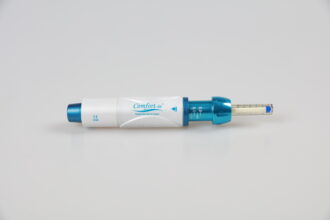The Electronic Health Records (EHRs) and Electronic Medical Records (EMRs) play a key role in managing and protecting sensitive patient health information. Over time, due to the evolution of technology, EHR/EMR integration, powered by advancements in healthcare software development, can effectively protect patient data, eventually improving the overall patient experience.
- What is EHR/EMR?
- Importance of EHRs and EMRs
- Role of EHR/EMR Integration is Critical for Modern Healthcare Systems
- Enhanced Data Accessibility
- Monitoring
- Improved Clinical Workflow
- Increase Efficiency
- Compliance and Data Protection
- Competitive Edge
- Value-Based Care
- Integration with Latest Technologies
- Conclusion
Let us tell you more about EHR/EMR integration, its importance, and its crucial role in the healthcare sector. First, we will begin with a basic introduction to EHR/EMR.
What is EHR/EMR?
EHR and EMRs are both digital systems used for managing patient health information, and the difference lies in their scope and purpose.
● Electronic Medical Records
Electronic medical records (EMRs) are particularly helpful in small healthcare settings, such as individual clinics or private practices. They help in the arrangement of documents, keep records, and offer quick access to medical data. EMRs are best for daily operations and support better patient care within small healthcare environments.
● Electronic Health Record (EHR)
These are digital versions of a patient’s paper charts, consisting of detailed information about the patient’s:
- Health history (treatments and allergies, etc)
- Diagnoses and treatments
- Medications
EHRs are the systematized collection of patient health information collected and stored electronically. These systems are usually appropriate for large settings.
In a nutshell, Electronic Medical Records (EMRs) are useful within a single healthcare provider’s practice. In contrast, Electronic Health Records (EHRs) have a broader scope, as they are designed to share data across various healthcare settings. This helps in supporting the idea of collaborative care, facilitating enhanced interoperability.
Importance of EHRs and EMRs
Electronic Health Records (EHRs) and Electronic Medical Records (EMRs) are essential tools for enhancing the accuracy and accessibility of patient data. Additionally, they also support the smooth transfer of data between systems. However, the EMRs are more focused on keeping records of health data within a single provider’s office, while EHRs allow the exchange of health data across multiple healthcare settings. Effective EHR and EMR integration often relies on flexible platforms that prioritize data accessibility. Tools such as Canvas Medical demonstrate how modern systems can support developers and clinicians in creating streamlined, patient-centered workflows.
All in all, both systems help in:
- Reducing errors
- Streamline administrative tasks
- Improve clinical decision making
- Provide patient-centric care
It becomes challenging for hospitals and healthcare systems to determine whether they require an EHR or an EMR. Here, any healthcare software development company can help them understand their requirements and create a solution that serves them well.
Role of EHR/EMR Integration is Critical for Modern Healthcare Systems
Although the EHR and EMR systems differ in their scope, they are equally helpful in improving patient care, enhancing operational efficiency, and ensuring smooth data exchange. Let us tell you more about their importance. Moreover, advances in healthcare software development have made these systems more user-friendly and flexible, enabling them to deliver better outcomes.
Enhanced Data Accessibility
The healthcare system requires a seamless flow of information between systems, as it enables doctors to provide efficient care to their patients. Here, the EHR system plays a crucial role by consolidating information from various sources into a single location. Moreover, the integration of EHR also facilitates the sharing of patient information through data guidelines and regulations.
Monitoring
This real-time exchange of data, made possible by EHR or EMR systems, enhances the monitoring of patient health metrics. It helps physicians in the early detection and intervention of diseases, which saves the patients from any further complications. This has also helped the healthcare world move towards a more patient-centric approach. Additionally, the recent AI-powered tools have increased the chances of detecting any abnormality or anomaly that might escape the human eye.
Improved Clinical Workflow
EHR integration enhances workflow efficiency by reducing administrative tasks, resulting in improved clinical workflows. Additionally, this allows healthcare professionals to focus more on patient care instead of dealing with insurance or tackling lengthy paperwork. Moreover, the EHR systems can also automate the routine tasks such as:
- Ordering tests
- Prescribing medications
- Minimizing errors
- Reducing administrative burden
This helps streamline communication among the healthcare professionals, allowing them to make faster and informed decisions, ultimately improving patient care and operational efficiency.
Increase Efficiency
The EHR systems can help increase efficiency in healthcare by streamlining patient data. They enable quick access to medical histories, reducing errors and paperwork. EHRs also facilitate better coordination among healthcare professionals, allowing them to make informed decisions. Additionally, features such as automated reminders and alerts help manage medications and appointments. The EHRs can also support fast billing, saving time and resources.
Compliance and Data Protection
The integration of an Electronic Medical Record (EMR) or Electronic Health Record (EHR) helps healthcare institutions comply with data protection regulations, such as the Health Insurance Portability and Accountability Act (HIPAA). These systems enable healthcare professionals to document all information accurately and store it securely, minimizing the chance of error or missing data during audits. Maintaining detailed records with proper security measures, such as powerful encryption and access controls, helps protect data against unauthorized access or breaches. In addition to safeguarding user privacy, it will ultimately reduce the risk of fines, tarnishing of image, or legal consequences that can occur due to non-compliance. In conclusion, EMR and EHR systems support healthcare providers in meeting regulatory standards while building an environment of trust, transparency, and accountability.
Competitive Edge
Healthcare organizations that use EHRs or EMRs have already gained a competitive edge over their competitors. These integrated systems help providers deliver personalized treatments, efficient and secure patient experiences that enable hospitals to attract and retain patients. Additionally, with the power of data insights and AI technology, the medical staff can continuously improve their operations, lead innovation, and become market leaders.
Cost Savings
The adoption of EHR is linked with cost efficiency and resource optimization as digitizing healthcare records and automating administrative tasks reduces dependence on paper. Thereby, reducing the operational costs that can increase due to storage, printing, and transcription. Additionally, the improved workflows resulting from EHR or EMR incorporation facilitate resource allocation, enabling healthcare facilities to reallocate personnel and financial resources to areas of greatest need.
Value-Based Care
EHR systems play a crucial role in the transition from fee-for-service models to value-based care by enabling the systematic tracking of patient outcomes. These systems allow healthcare professionals to assess their performance against established criteria and quality standards, facilitating the identification of areas for improvement within healthcare institutions.
A dedicated healthcare solution development company can help with seamless EHR development, featuring real-time insights and remote monitoring, which enables the delivery of personalized and proactive care. Ultimately, EHR or EMR systems for healthcare organizations are essential in helping doctors make swift decisions.
Integration with Latest Technologies
EHR and EMR systems, when integrated with modern technologies such as AI, ML, Cloud computing, and IoT, help enhance the quality of care by promoting real-time access to data, streamlining workflows, and improving decision-making. This also supports better patient outcomes, promotes data security, and simplifies compliance with data regulations. Accurate and effective integration also allows the exchange of data, making the healthcare system more responsive and personalized.
Conclusion
The EHR/EMR integration is crucial for delivering secure and patient-centered care in today’s complex healthcare landscape. These healthcare solutions seamlessly integrate with existing systems, ensuring long-term scalability and compatibility. In addition to secure data storage, seamless information transfer, enhanced accessibility to medical records, reduced paperwork, improved coordination, facilitating compliance with data regulations, faster billing, and coding. Additionally, as healthcare continues to evolve, hiring an experienced healthcare software development company can facilitate the development of customized, secure, and innovative healthcare solutions.

















